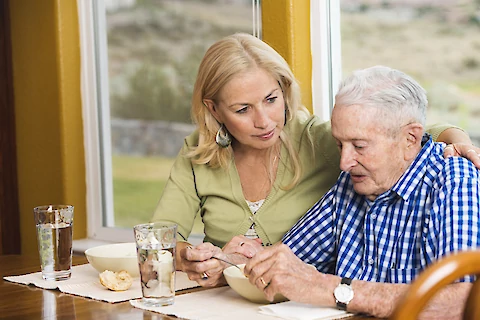
In the world of senior care, ensuring the health and well-being of our senior loved ones is a primary concern. However, particular health issues often go unnoticed and sometimes even ignored due to a lack of awareness or knowledge. One such situation is eating disorders, a problem not restricted to the young but prevalent among seniors as well. Spotting eating disorders in seniors presents unique challenges, often making early detection difficult.
Breaking the Silence of Eating Disorders in Seniors
Eating disorders are severe conditions characterized by unhealthy eating habits that can negatively impact a person's physical and emotional health. In seniors, they may manifest as anorexia nervosa, bulimia, or binge eating problems. These disorders may appear more often in women. Seniors may face unique challenges in dealing with these disorders, such as underlying health conditions, medication interactions, or isolation, all of which can exacerbate the issue.
How to Spot Late-Onset Eating Concerns
It's crucial to be aware of the signs of eating disorders in seniors, as the symptoms may differ slightly from those in younger individuals. Physical signs may include significant weight loss or gain, digestive issues, dental problems, or fatigue. Behavioral changes might involve an unhealthy focus on dieting, obsession with weight, or avoidance of social events involving food. Emotionally, they might show signs of distress, anxiety, or depression, particularly surrounding meal times.
The Importance of Early Detection
Early detection of eating problems is pivotal in successful treatment and recovery. It helps prevent the exacerbation of symptoms and the onset of secondary health issues. If left unnoticed, these disorders can lead to severe health complications, like malnutrition, organ damage, or osteoporosis, particularly worrisome in already vulnerable seniors. Therefore, we need to be vigilant in spotting the early signs to provide timely help.
Approaching the Topic With Sensitivity
Starting a conversation about eating conditions can be emotionally challenging. It's essential to approach the topic with sensitivity, respect, and understanding. Be patient and non-judgmental, emphasizing that your concerns stem from love and care. It's common for seniors to initially resist or deny the problem, so persistent yet gentle communication is of utmost importance.
Seeking Professional Help
When signs of an eating condition become evident, it's crucial to consult healthcare professionals, such as geriatricians, nutritionists, or therapists specializing in senior care. They can provide a comprehensive assessment and diagnosis and develop an effective treatment plan tailored to the unique needs of your senior loved one.
Senior Helpers Contra Costa Supports Seniors and Their Caregivers
Recognizing and addressing eating disorders in seniors is critical for maintaining their overall health and quality of life. Early detection can significantly improve the likelihood of successful recovery. So, be vigilant, compassionate, and proactive in seeking professional help for your senior loved ones. If you're in Contra Costa, Oakland, Moraga, Concord, or San Ramon, reach out to Senior Helpers Contra Costa. We're committed to providing companion care and support for senior’s needs, enabling them to live healthy and fulfilling lives.